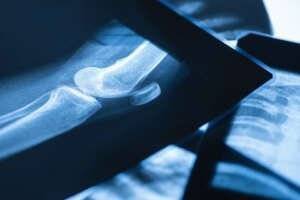Recovering from bone surgery requires a focus on comprehensive healing, and nutrition plays a crucial role in this journey. While calcium and vitamin D often take the spotlight, vitamin K2 emerges as a vital nutrient for bone repair and overall skeletal health. This blog delves into the science behind vitamin K2, its unique mechanisms, and practical ways to integrate it into your recovery plan, all based on scientific evidence.

The Role of Vitamin K2 in Bone Healing
Vitamin K2 is a fat-soluble vitamin that supports bone and cardiovascular health by regulating calcium. Unlike vitamin K1, which focuses on blood clotting, vitamin K2 activates proteins that ensure calcium is directed to bones rather than soft tissues. This is crucial post-surgery when optimal calcium utilization is key to effective healing.
How Vitamin K2 Works
- Activating Osteocalcin: This protein binds calcium to the bone matrix, improving bone mineral density and strength.
- Preventing Vascular Calcification: By activating Matrix Gla-Protein (MGP), vitamin K2 helps stop calcium deposits in blood vessels, reducing complications.
The Science Behind Vitamin K2 and Bone Repair
Bone healing involves three stages: inflammation, bone formation, and remodelling. Vitamin K2 plays a significant role in the latter two stages:
- Bone Formation: Research shows vitamin K2 enhances osteocalcin production, improving calcium incorporation into bones. A 2017 study published in Nutritional Science and Vitaminology found that adequate K2 levels improve bone density and healing post-surgery.
- Bone Remodeling: During this phase, old bone tissue is replaced with new tissue. Vitamin K2 ensures balanced calcium distribution, preventing weak or brittle bones.
- Reducing Inflammation: Vitamin K2’s anti-inflammatory properties support a favourable healing environment, minimizing recovery delays.
Vitamin K2 Deficiency: A Hidden Challenge
Modern diets, high in processed foods, often lack sufficient vitamin K2, making deficiency common. For post-surgical patients with increased nutritional demands, this can lead to poor calcium regulation, delayed healing, or complications such as non-union of fractures.
Best Sources of Vitamin K2
Incorporating vitamin K2 into your recovery plan can be simple:

- Fermented Foods: Natto, a fermented soybean dish, is an excellent source, particularly in its MK-7 form, which stays longer in the body.
- Animal Products: Egg yolks, organ meats (like liver), and aged cheeses (e.g., Gouda and Brie) provide moderate amounts.
- Supplements: MK-4 and MK-7 forms of vitamin K2 supplements are effective alternatives when dietary sources are insufficient.
Vitamin K2 in Synergy with Calcium and Vitamin D
Calcium and vitamin D work alongside vitamin K2 to optimize bone healing. Calcium forms the structural base, vitamin D aids calcium absorption, and vitamin K2 directs it to the bones. Without vitamin K2, calcium can accumulate in arteries, increasing risks of vascular calcification.
Daily Requirements and Supplementation
While there’s no official RDA for vitamin K2, experts recommend:
- MK-7 form: 100–200 micrograms/day
- MK-4 form: 45 milligrams/day
Always consult a healthcare provider before starting supplements, especially after surgery, to ensure safety and compatibility.
Practical Tips for Including Vitamin K2
- Plan Your Meals: Add natto, aged cheeses, or organ meats to your diet. Example: a natto stir-fry or a salad with cheese and olive oil.
- Pair with Healthy Fats: Since vitamin K2 is fat-soluble, consume it with sources like avocados or olive oil for better absorption.
- Take Supplements with Meals: For those using supplements, combining them with food enhances uptake.
Final Thoughts
Vitamin K2 is an essential yet often overlooked nutrient that can accelerate post-surgical bone healing. By promoting calcium utilization, reducing inflammation, and preventing complications, it serves as a critical ally in recovery. Combining vitamin K2 with calcium and vitamin D ensures a holistic approach to bone health.
Consult your healthcare provider to craft a recovery plan that includes this valuable nutrient, empowering your body to rebuild stronger, healthier bones. Through informed dietary choices and targeted supplementation, you can optimize your healing journey.
References
- Iwamoto, J., et al. (2017). Vitamin K2 therapy for postmenopausal osteoporosis. Journal of Nutritional Science and Vitaminology.
- Elshaikh AO, et al. (2020). Influence of Vitamin K on Bone Mineral Density and Osteoporosis. Cureus.
- van Ballegooijen AJ, et al. (2017). The Synergistic Interplay between Vitamins D and K for Bone and Cardiovascular Health. International Journal of Endocrinology.
- Zhang Y. et al. (2022). Effect of Low-Dose Vitamin K2 Supplementation on Bone Mineral Density in Middle-Aged Chinese: A Randomized Controlled Study. Calcified Tissue International.


